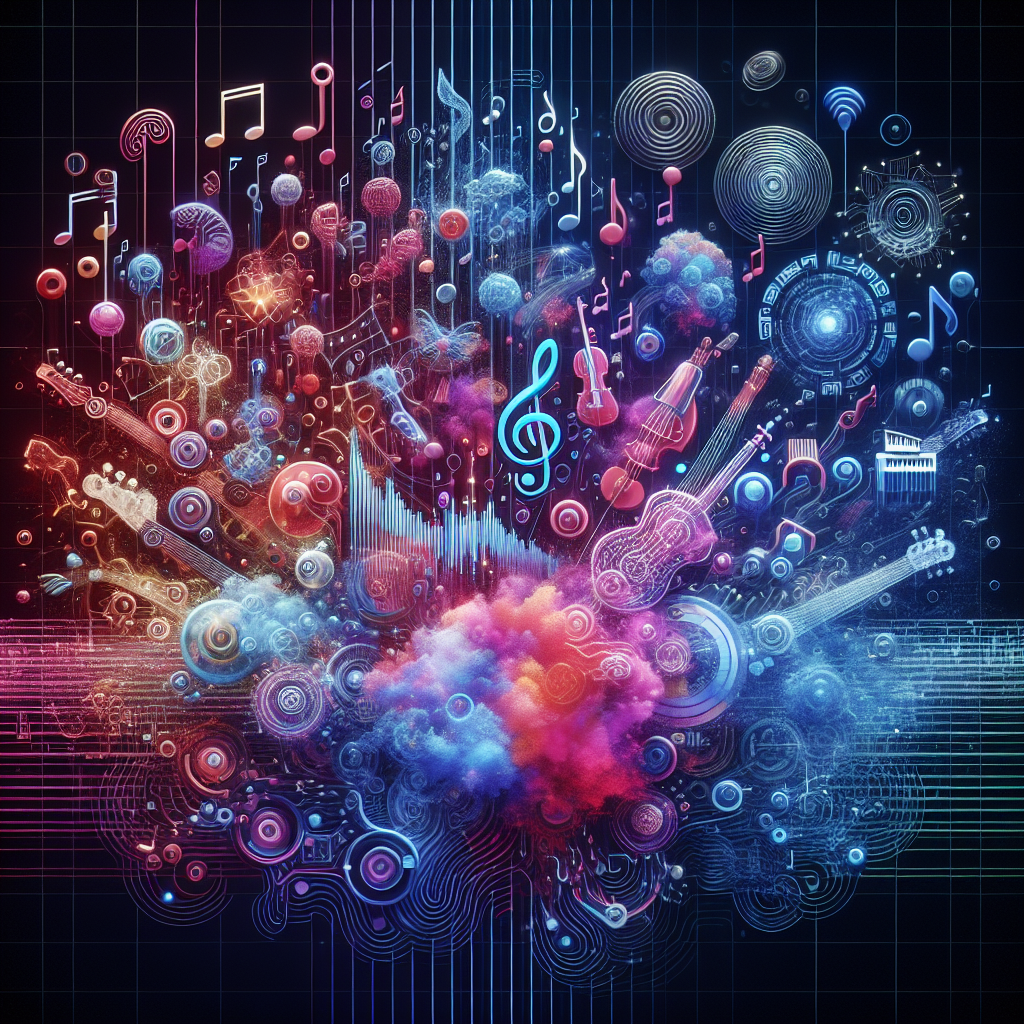The Future of Music: How AI is Influencing Creative Expression
Music has always been a form of creative expression that reflects the cultural and emotional landscapes of society. From classical symphonies to modern pop hits, music has the power to evoke emotions, tell stories, and connect people across the globe. In recent years, the music industry has seen a rise in the use of artificial intelligence (AI) technology to aid in the creation, production, and distribution of music. This has sparked a debate about the role of AI in creative expression and the future of music as a whole.
AI technology has the potential to revolutionize the music industry in a variety of ways. From helping musicians compose and produce music more efficiently to providing personalized music recommendations to listeners, AI is changing the way we interact with music. However, this rapid advancement in technology has also raised concerns about the impact of AI on the creative process and the role of human musicians in a world increasingly dominated by algorithms.
One of the most significant ways AI is influencing music is through the use of machine learning algorithms to analyze and create music. These algorithms can analyze vast amounts of data to identify patterns and trends in music, allowing musicians to gain insights into what makes a hit song. AI can also be used to generate music autonomously, with algorithms composing melodies, harmonies, and even lyrics. This has led to the creation of AI-generated music that is indistinguishable from music created by human musicians.
AI is also being used to enhance the production and distribution of music. AI-powered tools can help musicians improve the quality of their recordings, automate the mixing and mastering process, and even create music videos. These tools can save musicians time and money, allowing them to focus on the creative aspects of music-making. AI can also help music labels and streaming services better understand their audience’s preferences and behavior, allowing them to tailor their content and recommendations to individual listeners.
Despite the many benefits of AI in music, there are also concerns about the impact of AI on the creative process. Some musicians worry that AI will replace human creativity, leading to a homogenization of music that lacks the emotional depth and authenticity of music created by human artists. Others are concerned about the ethical implications of using AI to generate music, raising questions about ownership, copyright, and artistic integrity.
One of the key challenges facing the music industry is finding a balance between the use of AI technology and human creativity. While AI can be a powerful tool for musicians, it is important to remember that music is ultimately a form of artistic expression that comes from the heart and soul of the musician. AI can assist in the creative process, but it should not replace the unique perspective and emotion that human musicians bring to their work.
As AI continues to advance, the future of music is likely to be shaped by a combination of human creativity and technological innovation. Musicians will need to adapt to new tools and techniques for creating music, while also staying true to their artistic vision and voice. The music industry will need to find ways to support and nurture both human musicians and AI technology, ensuring that music remains a vibrant and diverse art form that reflects the richness of human experience.
FAQs
Q: Will AI replace human musicians in the future?
A: While AI technology is becoming more advanced, it is unlikely that AI will completely replace human musicians. AI can assist in the creative process, but human musicians bring a unique perspective and emotion to their work that cannot be replicated by algorithms.
Q: How can musicians benefit from using AI technology?
A: Musicians can benefit from using AI technology in a variety of ways, including composing music more efficiently, improving the quality of their recordings, and gaining insights into audience preferences. AI can save musicians time and money, allowing them to focus on the creative aspects of music-making.
Q: What are the ethical implications of using AI to create music?
A: There are ethical implications to consider when using AI to create music, including questions of ownership, copyright, and artistic integrity. It is important for musicians and the music industry to address these concerns and ensure that AI technology is used responsibly and ethically.
Q: How can musicians adapt to the changing landscape of the music industry?
A: Musicians can adapt to the changing landscape of the music industry by embracing new tools and technologies, collaborating with AI experts, and staying true to their artistic vision and voice. By staying informed and open to new possibilities, musicians can continue to thrive in a rapidly evolving industry.

